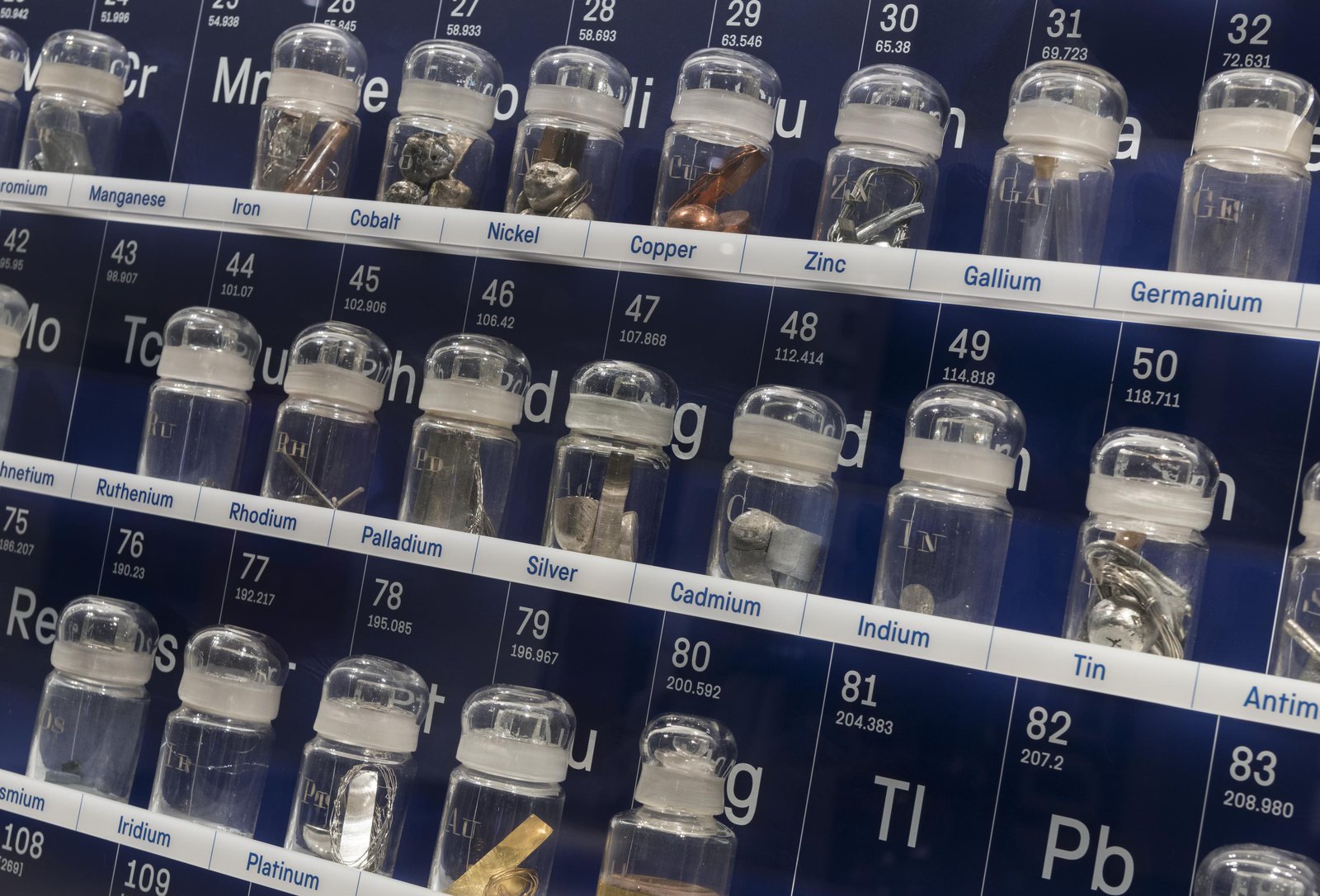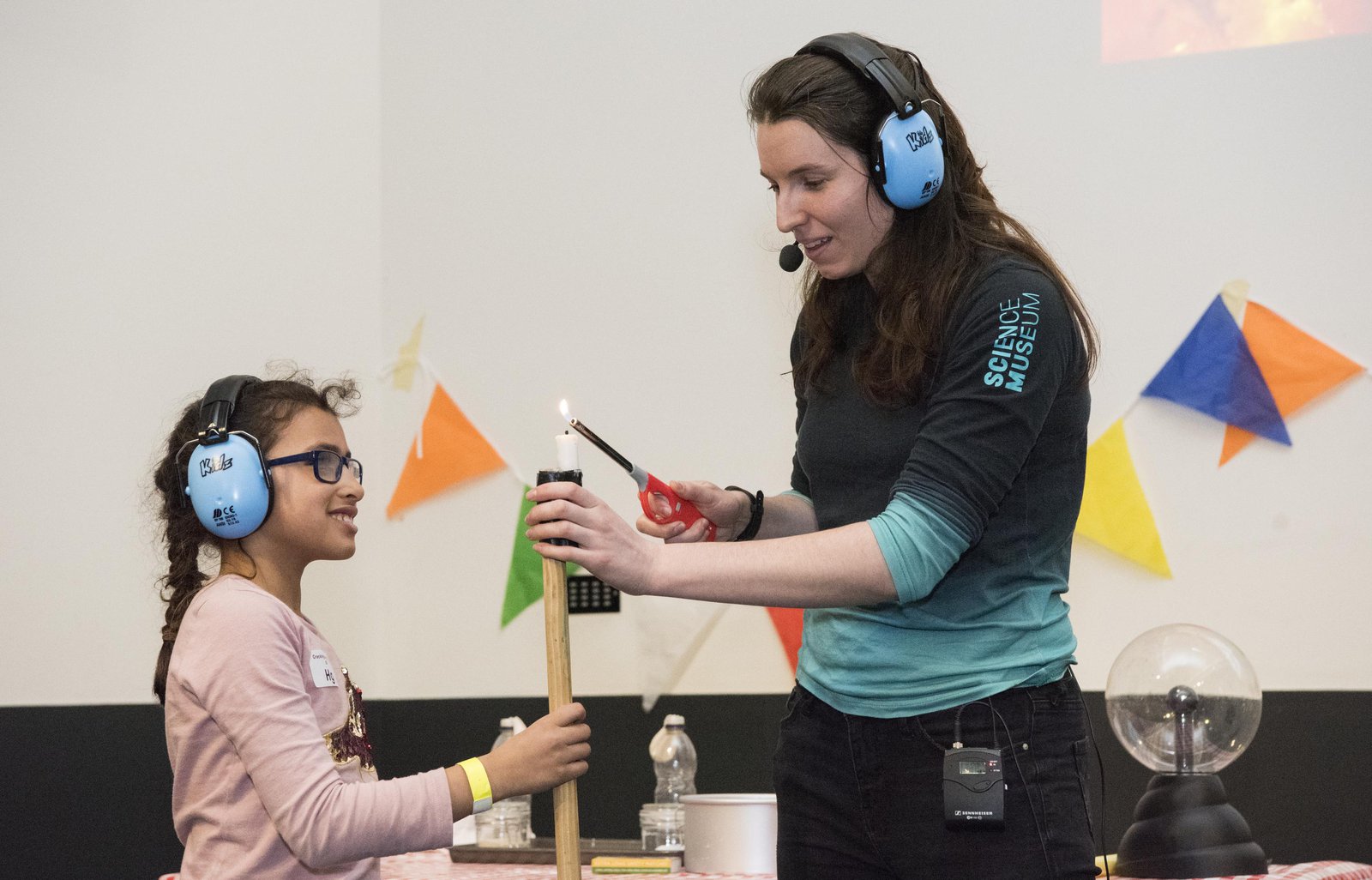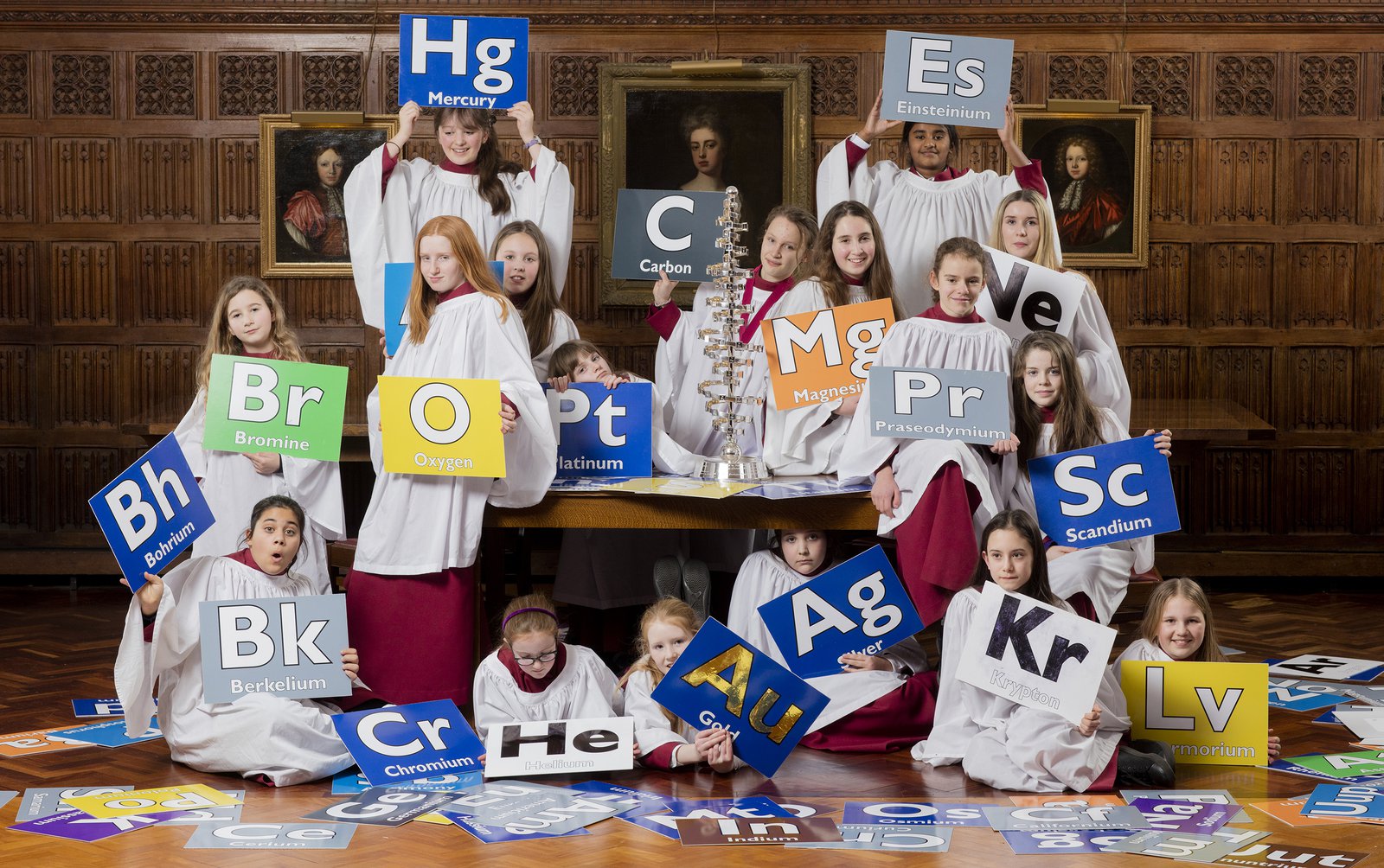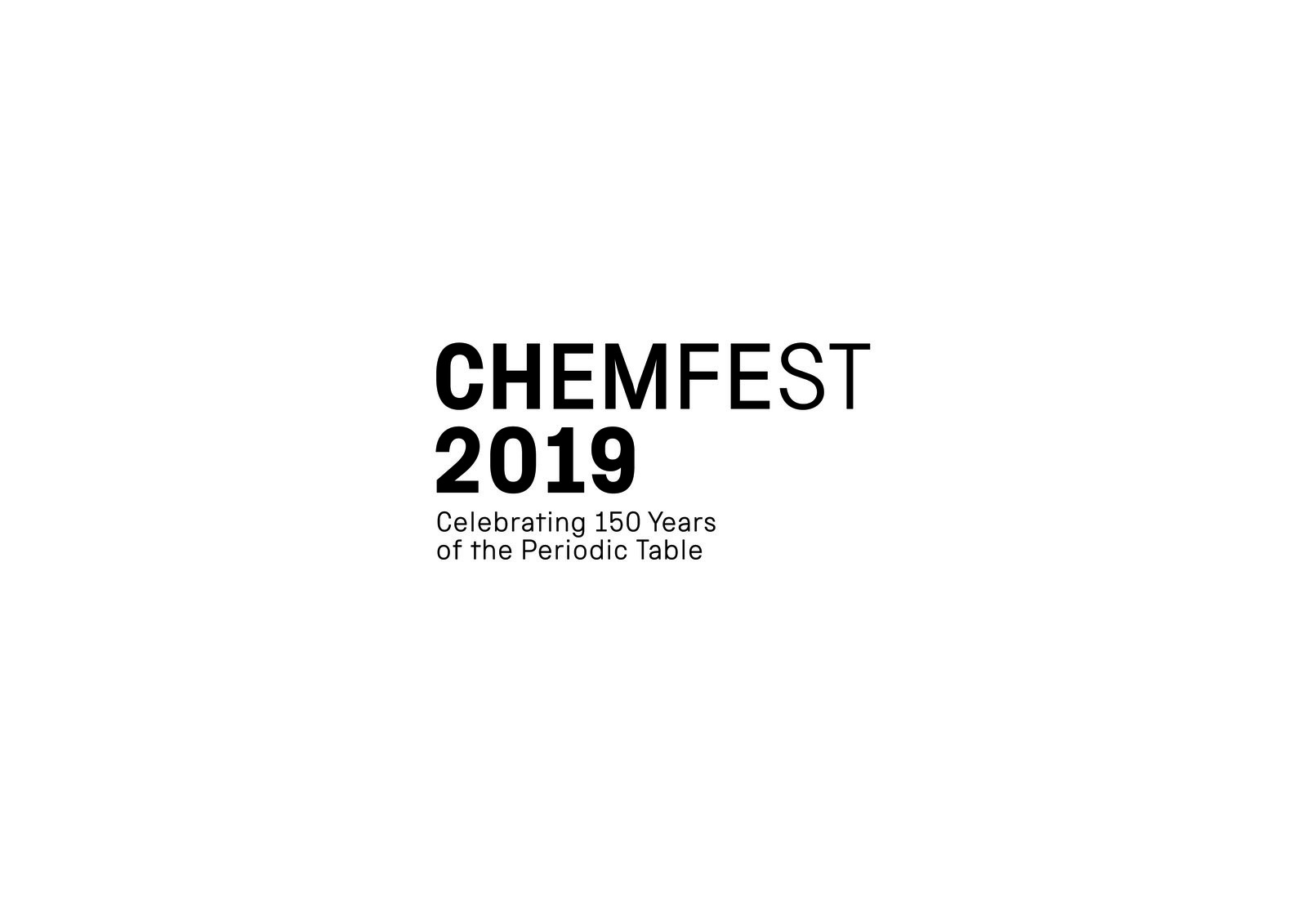To celebrate 150 years of the Periodic Table of the elements in 2019, the Science Museum, V&A, Imperial College London, Royal College of Art, Royal Commission for the Exhibition of 1851, the Royal Albert Hall and Royal Society of Chemistry held a festival of chemistry in South Kensington.
The festival, which took place during the UN’s International Year of the Periodic Table of Chemical Elements, included family-friendly activities at the Science Museum and Imperial College London and two one-day academic conferences exploring the history of chemistry and its future. The Science Museum also unveiled a new display about the Periodic Table and hosted a chemistry-themed Lates as part of the festival.
Events included:
- Marvellous Mistakes: a chance to find out how chemistry mistakes brought us some of the most colourful, loud and lifesaving inventions in a family storytelling for ages 3-6 at the Science Museum
- Cracking Chemistry: discovering the wonderful world of chemistry in an interactive explosive science show.
- It’s a Chem-mystery: hands-on chemistry workshops (Science Museum.)
- 150 years of the Periodic Table of Elements: a free display at the Science Museum celebrating the Periodic Table of Elements, opening 150 years to the day since Dmitri Mendeleev’s periodic table was announced in 1869. The display includes a copy of Mendeleev’s first published periodic table and a collection of over 50 elements once owned by Napoleon’s nephew, Prince Louis Lucien Bonaparte.
- Science Museum Lates: a chemistry-themed Lates in partnership with Imperial College London and the Royal Society of Chemistry, gave adults the opportunity to explore chemistry and the museum after hours.
- Chemistry in Albertopolis: hosted by the Science Museum and Imperial College London, this one-day academic conference explored the 150-year history of chemistry in South Kensington. The conference featured sessions and tours celebrating the institutions which helped make chemistry a key facet of intellectual and public life in this area.
- Chemistry Futures 2040: Chemistry Futures 2040 explored cutting-edge science in chemistry, presenting provocative visions, technological breakthroughs and the potential for discipline evolution.
- The Common Thread:In a programme of words and music, Tim Lihoreau, Mary Archer and students of the Royal College of Music explore the link between Russian chemist Dmitri Mendeleev and celebrated composers Alexander Borodin and Edward Elgar.
- Exploring the life of William Crookes: This year marks the centenary of the death of William Crookes. Crookes was a key figure in science in the nineteenth and twentieth centuries and this event will examine various aspects of Crookes's extraordinary career and his place in science. Held at The Royal institution




